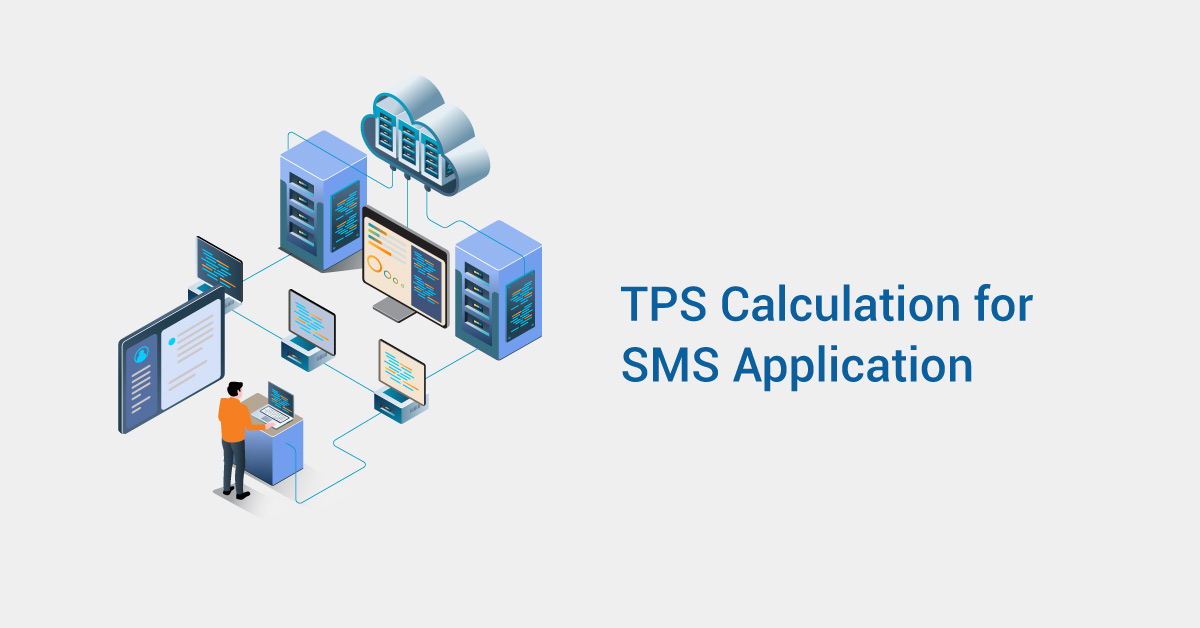
In recent times, there has been a surge in the bulk SMS trading business owing to the emergence of advanced SMS Gateways and infrastructure. Due to this many businesses such as the VoIP providers and SMS resellers are looking forward to expanding their marketing services by adopting bulk SMS services. For those who are already dealing in the bulk SMS segment or are going to start their business, it is important to understand the technicalities involved.
What is Throughput Per Second (TPS)?
TPS is the measure of data transfer between the connections measured by message per second. So, sending a message per second means 3600 messages per hour. Now you may be wondering: What’s the big deal with TPS for SMS / SMPP Application? While every other detail of your SMS marketing campaigns like the SMS content is important, equally important is the amount of messages that are being sent by the application in a certain time frame.
The higher the throughput the more messages you can send in a timely manner. Determines the quality of the SMS campaigns. Regardless of the pricing benefit offered by any bulk SMS platform, having a high TPS score ensures that the infrastructure is robust enough to manage the large SMS volume.
Therefore, businesses must identify their peak SMS traffic rate to assess whether the given SMS application is an appropriate solution or not. Let us have a look in detail.
Understanding the Flow of SMS

How to Calculate the TPS of an SMS Application?
It is always desirable to have a higher TPS score of an SMS application for bulk SMS service. The Throughput per Second score depends upon a number of factors and should be calculated under ideal conditions of CPU, RAM and network. Below mentioned are top 3 parameters that determine the overall throughput per second for any SMS application.
Latency
It is calculated in milliseconds and is the amount of time it takes for a data package to reach its destination. In other words, it is the total time required for a one-way trip from the source i.e. SMPP Client / ESME sending a packet to the destination i.e. SMPP Server / SMSC plus the one-way time required for the destination i.e. SMPP Server / SMSC sending a packet back to the source i.e. SMPP Client / ESME along with the time that the destination system requires to process the packet to SMSC.
High latency can lead to bad throughput rate. Therefore, the latency of an SMS platform should always be low because that defines the speed at which the SMS will arrive.
Window Size
It defines the maximum number of messages that can be left pending until the message is sent to the next route or is buffered. It is relevant for SMPP connections that are asynchronous in nature. Setting the window size to a high value is not recommended.
Number of Sessions
It refers to SMPP sessions which are established between ESME and Message Centre or the SMPP Routing Entity wherever appropriate. SMPP protocol enables applications to send and receive SMS messages to and from mobile devices. An established session is usually initiated by ESME which is usually in 3 forms – Transmitter (TX), Receiver (RX) and Transceiver (TRX).
Conclusion
Throughput is a really important technical concept as it defines the messaging power of an SMS application. The more the Throughput, the more will be the messaging capacity. This demands for a reliable messaging application that can process and deliver the desired information to the receiver and that too in the minimum possible time.
We know that business messaging is a lot more than just one-to-one conversations with customers. Companies that run large scale or time-sensitive messaging campaigns certainly need a reliable SMS platform when sending out mass messages. If you are looking for a reliable SMS application with a high TPS score, then please get in touch with us.






















